Ever since Pentecost the “protagonist of the Church” has been the Holy Spirit: it is he who “moves all things”, who helps us “to be strong in martyrdom” but also to “overcome the resistance” that can emerge within Christian community. During Mass at Santa Marta on Thursday morning, 28 April, Pope Francis recounted the history of the journey undertaken by the Church from her origins up to our age. It has been a path which, from the first debates among the Apostles, has been marked by certain approaches: “gathering”, “listening”, “discussing”, “praying and debating” with the Holy Spirit. It is the path, the Pontiff emphasized, “of synodality”, where “the communion of the Church”, which is the work of the Spirit, is expressed.
“The protagonist of the Church, of the work of the Church, of the growth of the Church” is the Spirit. This fact, the Pope recalled, arises clearly from Scripture. It is he, in fact, “who from the first moment gave the strength to the Apostles, one by one, to proclaim the Gospel, the name of Jesus”. The Spirit “said to Philip: ‘Take that road, where the Ethiopian proselyte was…’”; likewise, he sent Peter to Cesarea, and to Paul “he said: ‘Come over to Macedonia’, in a dream”. There, where Paul and Silas were imprisoned, it was again the Spirit who moved the jailer’s heart when, as the Acts of the Apostles read: “suddenly there was a great earthquake, so that the foundations of the prison were shaken; and immediately all the doors were opened and every one’s fetters were unfastened” (16:26). In the face of these extraordinary events the jailer asked for Baptism.
The Pontiff concluded: “It is the Spirit who does all things, the Spirit who leads the Church forward”. But, he added, he leads her forward “also in facing her problems”. Thus, “when persecution breaks out, after the martyrdom of Stephen, for example, it is the Spirit who gives strength to believers to remain in the faith”. It is again he “who makes the believers flee from Jerusalem after the martyrdom of Stephen” and who urges them to “carry faith in Jesus to other places”.
In the day’s passage from The Acts of the Apostles (15:7-21), we encounter the action of the Spirit “who leads the Church forward. He leads her forward in times of peace, of joy, of conversion, but also in difficult times of persecution and of the resistance and obstinacy of the doctors of the law”. In this passage, in fact, we read of the “resistance of those who believed that Jesus had come only for the chosen people”. On hearing that the Holy Spirit had come “upon pagans, upon Greeks, upon those who did not belong to the People of God”, they rebelled and said: “No, this cannot be done”. Even being of “good will”, they put up “resistance”. Just as when they themselves introduced other exceptions: “It’s true, the Holy Spirit came upon them, but they must make their way according to the law, in order to arrive at grace, that is to say, circumcision and all the rites of belonging to the people of Israel”.
It was a situation of “great confusion”, triggered by what the Pope called “the surprises of the Spirit”. In other words, “the Spirit set hearts on a new path” and the Apostles “found themselves in situations they would never have believe, new situations”. The problem was “how to manage these new situations?”. It is no coincidence that the passage of the Acts begins by specifying: “In those days, after there had been much debate…”. It was, Francis emphasized, a “heated” debate because the Apostles “had the strength of the Spirit — the protagonist — who urged them to go forward, forward, forward”; but at the same time the Spirit “brought them certain innovations, certain things that had never been done” — moreover, things that “they hadn’t even imagined”. Such as, for example, the fact that pagans could receive the Holy Spirit. Thus, they wondered: “What do we do?”. They had, the Pontiff explained, “a hot potato in their hands, and they didn’t know what to do”.
We then read in the Acts that for this reason they held a meeting in which everyone recounted “his own experience — Paul, Barnabas, Peter”, and of how in the end the Apostles “came to an agreement”. However, the Pope said, before the final solution, we note “something beautiful: ‘all the assembly kept silence; and they listened to Barnabas and Paul as they related what signs and wonders God had done through them among the Gentiles”. From the recounting of their experiences, a fundamental aspect emerged: “to listen, not to be afraid to listen”. This is important because, Francis said, “when someone is afraid to listen, he does not have the Spirit in his heart”. Above all it is important “to listen with humility”.
Indeed, only “after listening”, did the Apostles decide to send some disciples “to the Greek communities, namely the Christians who came from paganism”, in order “to calm them and tell them: ‘You are fine, go in this way’”. Therefore, “they reached an agreement, they sent these brothers and decided to write a letter”. In that letter too, the Pontiff stated, “the protagonist is the Holy Spirit”. It reads: “it has seemed good to the Holy Spirit and to us”, and in other translations: “It is the decision of the Holy Spirit and of us…”. Thus, it is clear that the Apostles, “with the Spirit, guided the Church”.
The day’s reading is of course indicative of which is “the way of the Church in the face of the persecutions” and also in the face of the “surprises of the Spirit, because the Spirit always surprises us”. How do they address problems? By “meeting, listening, debating, praying, and the final decision. And the Holy Spirit is there”. A way, a path followed from the beginning “until today”, each time “the Spirit surprises us” with something described in this way: “it has never been done like this”’ or “it must be done like this”.
The Pope then gave an example “closer to us”: “Think about Vatican ii, to the resistance the Second Vatican Council had”. Today too, he said, there is “resistance that continues in one form or another, and the Spirit who moves forward”. But “this is the path of the Church: meeting, joining together, listening, debating, praying and deciding. This is the so-called synodality of the Church, in which the communion of the Church is expressed”.
Once again, Francis explained, we meet the “protagonist” of all time. Indeed, “who creates communion? It is the Spirit!”; and “what does the Lord ask of us? Docility to the Spirit”, in other words, “not to be afraid when we see that it is the Spirit who calls us”. Sometimes, however, it is the Spirit who stops us” and points us to the right path. Surely the Spirit “never leaves us alone” and “gives us courage, gives us patience, lets us go confidently on the path of Jesus, helps us to overcome resistance and to be strong in martyrdom”. This Spirit, the Pope concluded, “is the Father’s gift that Jesus sent to us”.
The Pontiff then invited this prayer: “Let us ask the Lord for the grace to understand how the Church has from the first moment faced the surprises of the Spirit”, and let us also ask that we each may have “the grace of docility to the Spirit”.

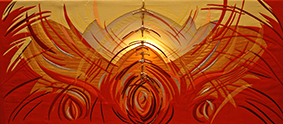
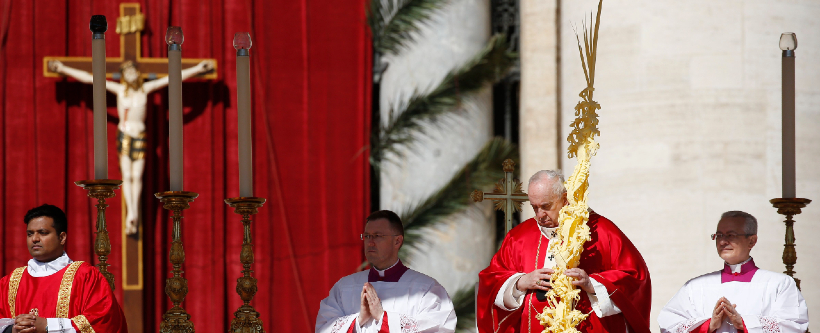
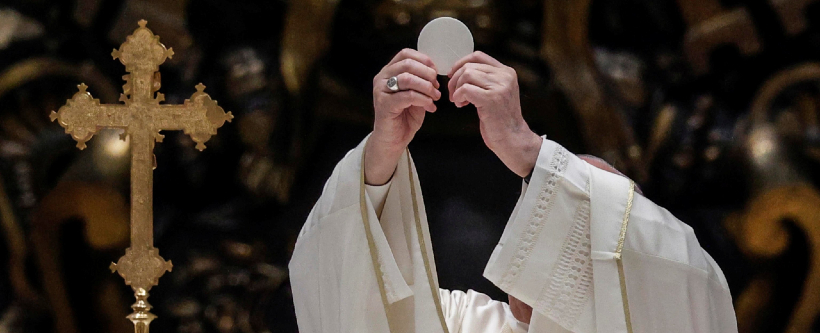
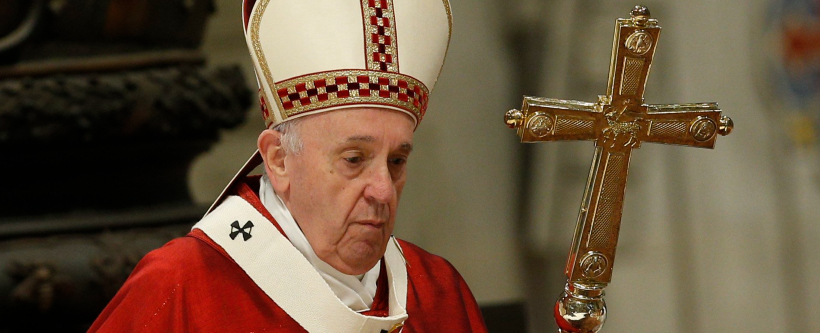
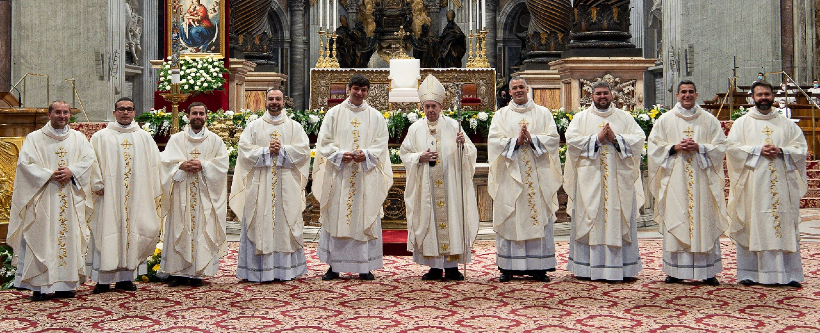
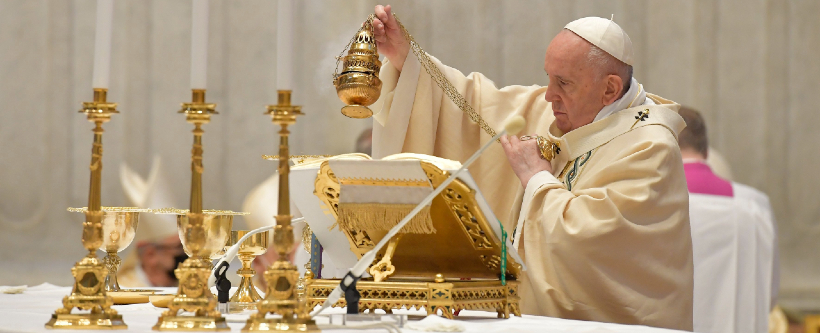
Facebook Comments